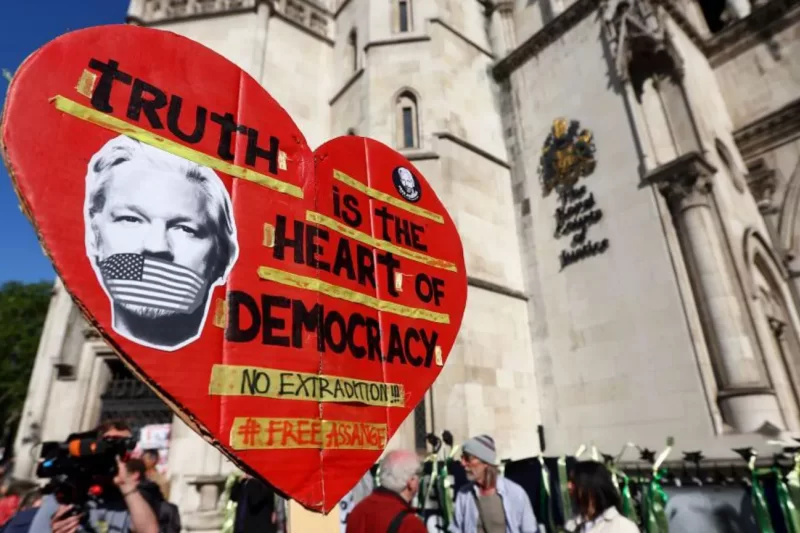How the Deal to Free Julian Assange Was Agreed
In the end, it was a mixture of diplomacy, politics and law that allowed Julian Assange to take off in a private jet from London's Stansted airport on Monday, bound ultimately for Australia and freedom.
The deal that led to his liberty - after seven years of self-imposed confinement and then five years of enforced detention - was months in the making but uncertain to the last.
In a statement, the Crown Prosecution Service (CPS) said the possibility of a plea deal "first came to our attention in March". Since then, it had been advising the United States "on the mechanics" of how to get Mr Assange released and to appear before a US federal judge “in accordance with his wishes and those of the US government”.
But the origins of the deal – after so many years of deadlock – probably began with the election of a new Australian government in May 2022 that brought to power an administration determined to bring home one of its citizens detained overseas.
Anthony Albanese, the new Labor prime minister, said he did not support everything Mr Assange had done but "enough was enough" and it was time for him to be released. He made the case a priority, largely behind closed doors. "Not all foreign affairs is best done with the loud hailer,” he said at the time.
Mr Albanese had cross-party support in Australia's parliament too.
A delegation of MPs travelled to Washington in September to lobby US Congress directly. The prime minister then raised the issue himself with President Joe Biden at the White House during a state visit in October.
This was followed by a parliamentary vote in February when MPs overwhelmingly supported a call to urge the US and the UK to allow Mr Assange back to Australia.
They lobbied hard the influential US ambassador to Australia, Caroline Kennedy.
A key player was Stephen Smith, who arrived in London as the new Australian High Commissioner in early 2023.
Diplomatic sources said he "did a lot of the heavy lifting, making it a personal thing to get this over the line".
Mr Smith - who paid an early visit to Mr Assange in Belmarsh prison in April 2023 - was also foreign minister in a former Australian government led by Kevin Rudd, the current ambassador in Washington who was also involved in the negotiations.
Simon Jackman, Honorary Professor of US Studies at the University of Sydney, told the BBC there was a "natural inclination" for Australian governments to support the US but public and political sentiment had shifted just enough in both countries to give Mr Albanese “cover” to agitate for Mr Assange's release behind closed doors.
Australian ministers even at times compared the detention of Mr Assange to other Australian nationals held as political prisoners by Iran and China.
Greg Barns, a barrister and legal adviser to the Australian Assange campaign, said it was the politics that made a difference.
"The Albanese government was the first to elevate the matter with the US. And Albanese got support from the opposition.
"The treatment [of Assange] stuck in the craw of many Australians. People would ask, 'where’s the public interest in that?'"
(Source: BBC)













